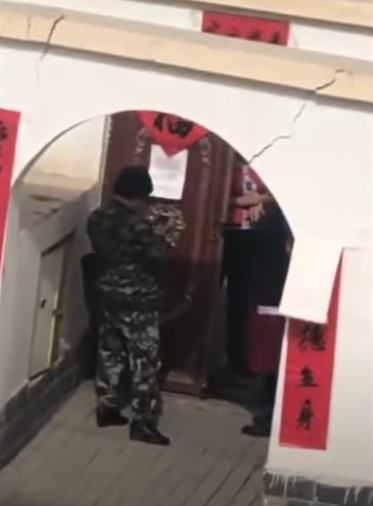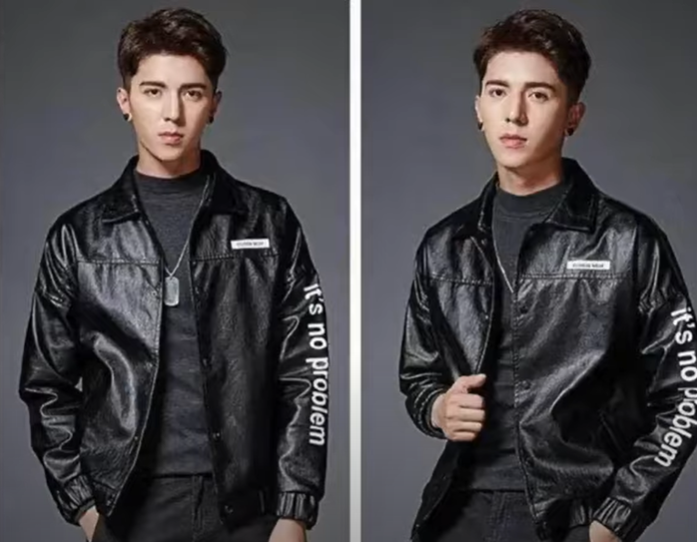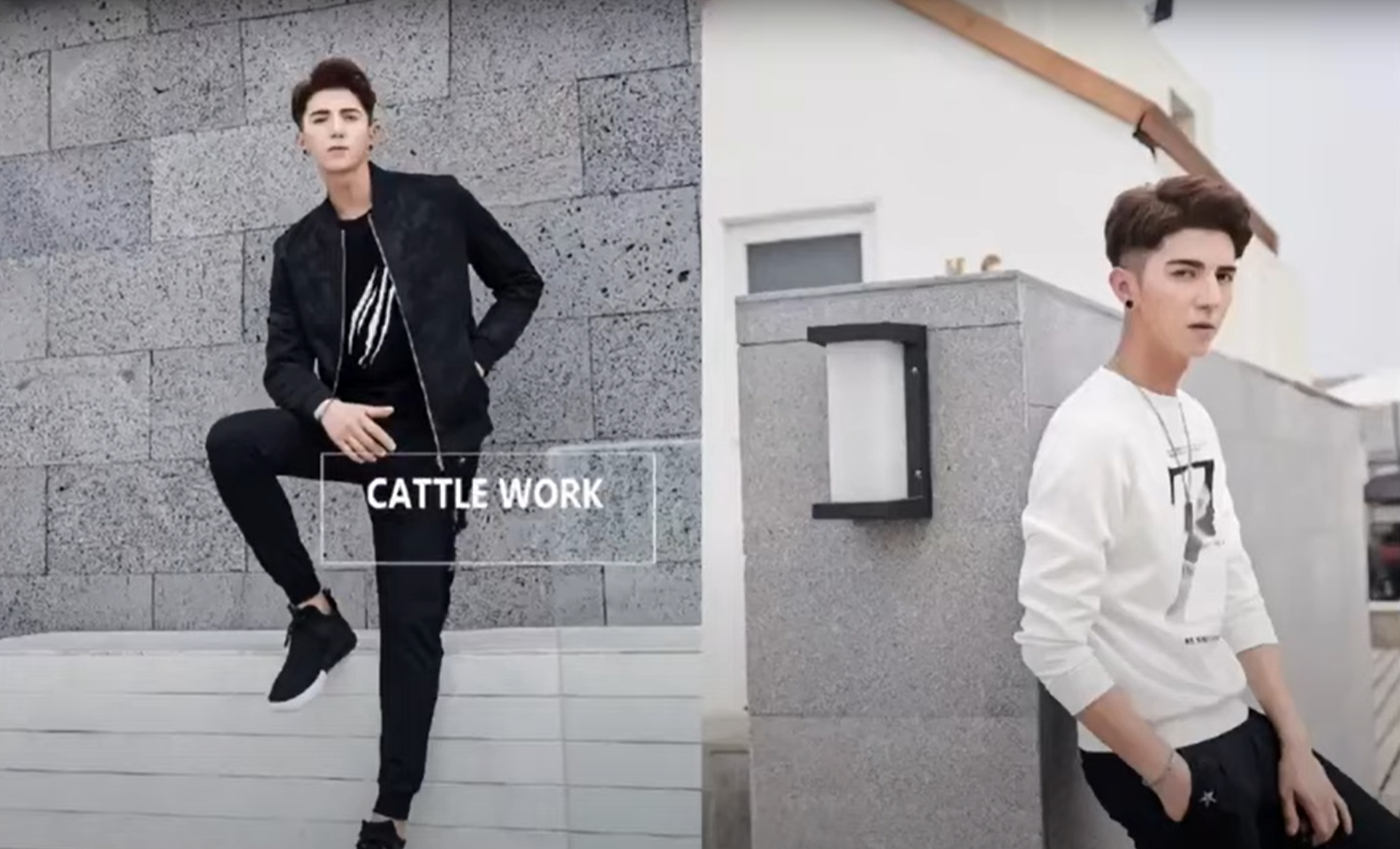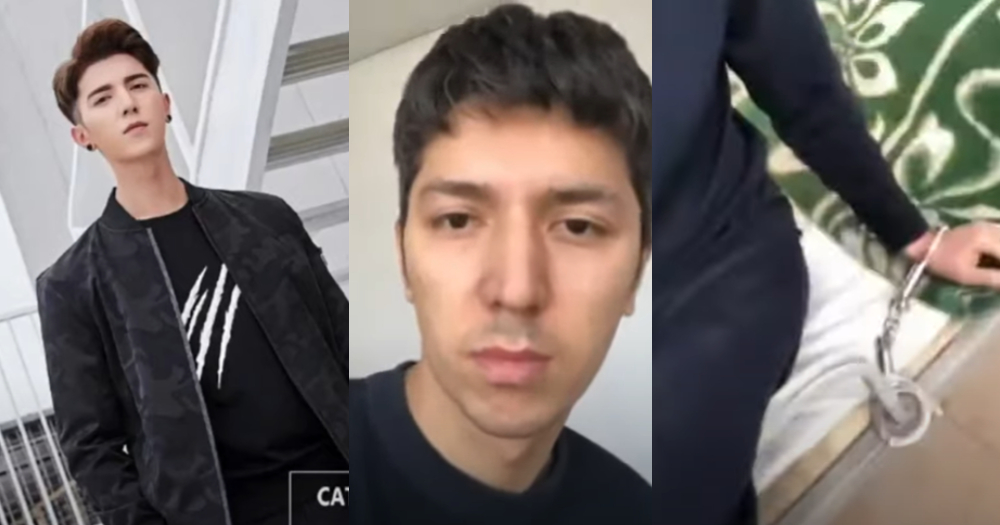A video and text messages sent by an Uighur man allegedly held in a detention camp in Xinjiang, China, have supposedly revealed further details about life in the secretive compounds.
Video sent from cell
In a video received by his family this year, which was later sent to BBC, 31-year-old Merdan Ghappar filmed himself sitting on his bed, with his hand shackled to the bed frame.
 Screengrab via BBC
Screengrab via BBC
Guards and more facilities were seen outside his grilled windows too.
 Screengrab via BBC
Screengrab via BBC
Announcements in the Uighur language could also be heard playing in the video.
The messages were translated for the BBC by James Millward, an expert on China's Xinjiang's politics.
According to him, the message broadcast over the loudspeakers was:
"Xinjiang has never been an 'East Turkestan'. The so-called 'East Turkestan State' has never existed or been recognised... Separatist forces in China and abroad have politicised this geographical term and called for those who speak Turkic languages and believe in Islam to come together."
Arrested for allegedly selling marijuana
The BBC said that Ghappar's video shows there are still significant numbers of people being detained, despite what the Chinese government said in July 2019 that most detainees had been released from the camps.
He was detained after serving 16 months in prison in 2018 for allegedly selling 5g of marijuana, but his supporters said he was falsely accused of the charge, the BBC reported.
He was then sent from Foshan city in Guangdong province, where he was working as a model for online shopping site Taobao, back to Xinjiang in January 2020.
 Image via Taobao
Image via Taobao
 Image via Wu Zi Yang Agency
Image via Wu Zi Yang Agency
Ghappar's family told the BBC that for the sake of his modelling career, he was told to hide his Uighur ethnicity and to say he is "half-European".
 Image via Wu Zi Yang Agency
Image via Wu Zi Yang Agency
Not allowed to look at each other or the guards
Ghappar also sent text messages to his family that mentioned the conditions he faced in the camp.
He said he was brought to a detention centre that was extremely cramped -- even though it was less than 50 square metres, it was holding about 50 to 60 people.
Chairs for police officers on duty took up one-third of the space, while the detainees, split into men and women, were locked in cells, he said.
They were all wearing a "four-piece suit" -- a black head sack, handcuffs, leg shackles and an iron chain connecting the handcuffs to the shackles.
Due to the lack of space, they could only sleep sitting up or sideways while hugging their legs to their chests.
He said: "No one is allowed to lift their head sacks to look at others or the police guards... If you do so, you'll be scolded really badly," he said.
"That was what happened to me on my first day there."
Ghappar said he had lifted his head sack and told the police officer that the handcuffs were so tight they hurt his wrists.
But the police officer had shouted at him, saying if Ghappar does that again, he would be beaten to death.
Ghappar said he dared not talk since then, adding that dying in the camp was "the last thing he wanted".
Brought to a quarantine cell
He was later taken to a facility which he described as an "epidemic control centre", which was the place where he apparently shot the video and sent the messages from, after his body temperature was recorded to be higher than normal.
He said his entire body was covered in lice, which made him feel really itchy.
The facility had similar rules to the place he was previously detained.
Detainees were allowed to use the toilet twice a day, and while conditions were better at his current facility, there were two people assigned to watch over him.
It was there that he said he got hold of his phone from his personal belongings, some of which he had access to, as the police had not noticed it.
Ghappar also claimed that during the afternoon, elderly detainees with ailments such as high blood pressure had to "beg" the police officers on duty to take them to the toilet.
The police would take a longer time to come down to the cells from their offices, and scold the elderly detainees for wanting to go to the toilet, he said.
 Image via Wu Zi Yang Agency
Image via Wu Zi Yang Agency
Harsh treatment of detainees
He also recounted one time when he heard a man screaming from morning to evening, speculating that he was being tortured.
Ghappar also said four youngsters, whose ages range from around 16 to 20, were brought in one night after they were found playing a baseball-like game outside, suggesting that quarantine rules were enforced more strictly in Xinjiang.
"They were beaten so hard they kept screaming. The skin on their buttocks split open and they couldn't even sit down," he said.
Ghappar also sent a picture of a document that he allegedly found on the toilet floor.
The document is a notice for staff to "mobilise" religious figures and Uighur people as young as 13 years old, calling for them to "surrender and self-reflect".
Situation unknown now
Ghappar's messages stopped coming five months ago around Feb. 29 after he was able to text for a few days, and his family have not heard from him since.
His uncle, Abdulhakim Ghappar, who is now living in Amsterdam, told the BBC they had to release the video as "staying silent won't help him".
"Raising public awareness is our only chance to rescue him," he said. He also said he believed the younger Ghappar was detained due to his political activities outside of China.
The BBC has reached out to Chinese authorities to confirm if Ghappar was suspected of any crime in China.
They also asked why Ghappar was handcuffed to a bed, but did not receive a response at the time of publication.
China says Uighurs in Xinjiang are free
Millward told the BBC that what Ghappar described in his text messages was consistent with other accounts.
He also said Ghappar, who already had a successful career as a fashion model, and who speaks "wonderful Chinese" and "writes well", is not someone who needs "education for a vocational purpose".
The Chinese government has officially recognised "training centres", saying these facilities "transform the thinking of the trainees so as to help them return to society, and to their family".
They have consistently denied that they are suppressing their Uighur population.
Foreign ministry spokesperson Hua Chunying has also hit back at criticisms over the country's Uighur policies, saying in the wake of George Floyd's death that Uighurs in Xinjiang were "breathing freely and enjoying their life", unlike black people in the U.S.
Harsh Uighur policies justified by need to suppress "terrorism"
Tensions between the Chinese state and the Uighurs have existed since 1949 when the state of East Turkestan was defeated by Chinese communist forces with the support of the Soviet Union.
Since then, China has cracked down on groups that support "separatism".
Many Han Chinese have also moved to the region.
In 2009, ethnic riots broke out between Han Chinese and Uighur Muslims in Xinjiang, leaving almost 200 people -- both Han and Uighur -- dead.
The clashes worsened the tensions between the state and the local population.
China subsequently declared a "people's war on terrorism" in 2014, citing "counterterrorism" as justification for their activities in Xinjiang.
China denies oppression in Xinjiang
Although China says violence in the region is due to Islamist extremists and separatists, therefore justifying their harsh policies and restrictions on Islamic traditions, Uighur leaders have refuted their claims.
Human rights activists say Xinjiang's unrest is due to frustration at the state's repressive policies.
China, on the other hand, has consistently denied any oppression in Xinjiang.
A commentary on The Diplomat speculated that the Chinese Communist Party have no qualms about using harsh measures, as the idea of a "stable" Xinjiang overrides everything else, even the party's international reputation.
It is also important for them to be seen in control of the situation by the majority Han Chinese population.
Related stories:
Top image adapted via Wu Zi Yang Agency & the BBC
If you like what you read, follow us on Facebook, Instagram, Twitter and Telegram to get the latest updates.
